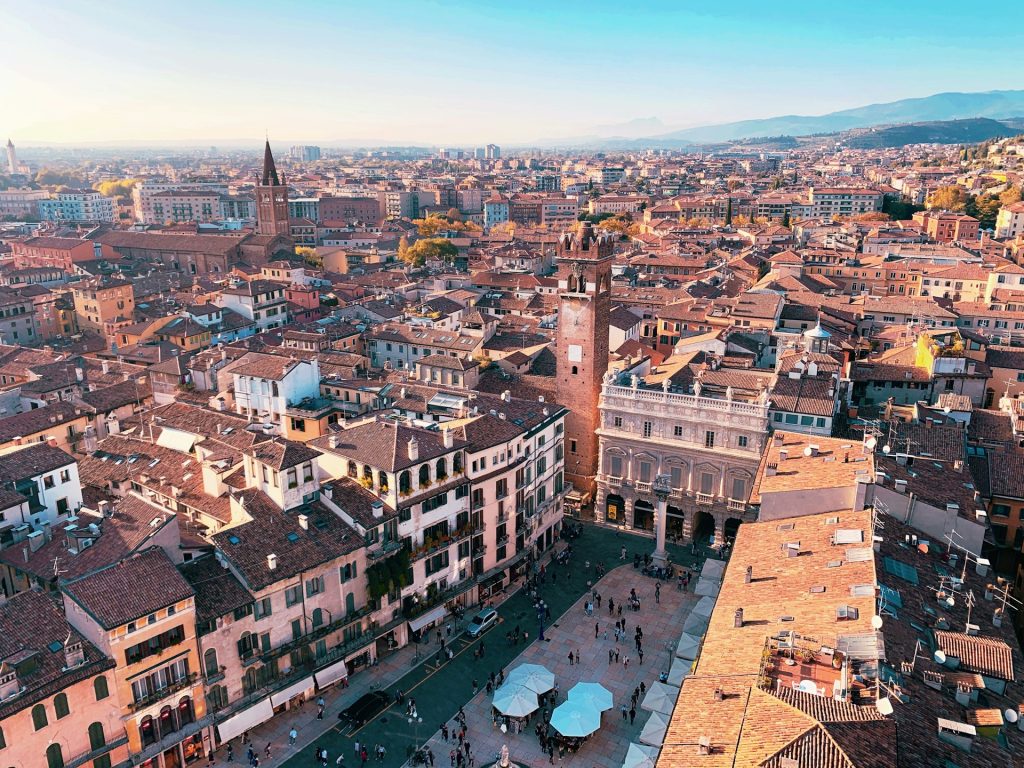Housing rights: Verona’s challenges and solutions
Verona calls for legislation that allows cities to make targeted interventions to address the housing crisis
Tourism, lack of funds and regulation, high housing demand. This is the mix that fuels the housing crisis in Verona, one of Italy’s most popular destinations.
Strategically located in the North, Verona is a centre of industries, international trade and university campuses. Therefore, housing demand is booming. Migrants employed in local factories and students are among those more in need of affordable housing. However, the public and social housing supply is far from meeting the demand. According to the latest data, the city needs 5.000 apartments in the medium to long term and at least €100 million in funding, while 17.000 private housing units are unoccupied and over 500 public/social units require renovation.
To dive deep into the issue and see how the municipality is addressing this urgent matter, we interviewed Luisa Ceni, Councillor for Social and Housing Policies, the Third Sector, and the Social Territorial Area of the municipality of Verona.
Is there a housing crisis in Verona?
Yes, a severe one. The real estate market is booming. Prices are extremely high, even in peripheral areas. Verona is one of the cities where the price per square meter doesn’t decrease. In any case, the local property portfolio is insufficient to meet the demand.
Entrepreneurs ask for help to find apartments for the migrants they need to recruit. Students from elsewhere need an affordable place to move here and exercise their education rights. Local young people cannot afford to buy an apartment.
Then, of course, we need to think about the low-income and vulnerable people: from women with children who are victims of violence to those who have three jobs but still don’t earn enough. In addition to this, we need to be aware of the social context. Even if migrant workers can afford the rent, they’re often turned away. Racism has strong roots here.
Today, private owners prefer to leave their property empty or to rent it to tourists for a few days: less risks, more profits.
Verona is the city of Romeo and Juliet. Between January and August 2024, the city recorded a 5.9% increase in tourists compared to the pre-Covid period. How is tourism impacting the housing crisis?
Tourism is both a resource and a challenge. The historic centre is full of tourist accommodations, similar to Venice. Owners prefer short-term rentals for various reasons: there aren’t specific regulations to comply with, profits are higher and taxation is lower than for long-term rentals and, finally, tourists stay just a few days and keep the place clean. Long-term renting can lead to problems. How many eviction cases due to non-payment do we see? How often does an owner prefer to keep an apartment vacant?
On the other hand, tourists save money by renting apartments, and tourism brings several benefits to the entire historic centre, generating new jobs and boosting the local economy.
It’s like the Wild West: we need more specific rules protecting everybody. The latest national law on short-term rentals doesn’t solve anything; it just adds costs in an attempt to protect hoteliers. We need legislation that allows cities to make targeted interventions, as not all cities have the same needs.

How is the public and social housing situation?
The municipality has a significant real estate portfolio of 4.063 units. Most of the properties belonged to a wealthy resident who left an extensive property portfolio to the city, with the condition that it be used to help the most vulnerable citizens. These assets also include land, whose income must be reinvested in social programmes.
As these properties date back to the early 1900s, they are in poor condition. Verona is a historic city with many old buildings, and most of the public housing was built in the ‘60s and ‘70s. In 2024, we allocated an additional €1.5 million to the municipal agency AGEC for renovations. These funds are being invested in refurbishing currently vacant apartments. There are 500 apartments in need of renovation before they can be reassigned, but with available funds, we can only renovate about 200 per year. Even if we had the funds to renovate all 500 apartments, it wouldn’t be enough to meet the demand. We need to involve the private sector, but how? The issue is not only renovation but also the management of properties afterward.
How are you addressing the housing emergency?
We are developing a significant urban regeneration project called Forte Santa Caterina, financed with €15 million from the EU PNRR fund, plus an additional €4 million from the municipality. We will build 20 social housing units, demolish old military storage buildings and create a park. This project is sustainable in every sense, including energy efficiency. The housing will face southwest for optimal solar gain. We plan to use sustainable materials, implement rainwater recycling, and reuse materials from demolitions. We aim to make it as inclusive as possible. We held co-programming meetings with the third sector to ensure the project benefits the most vulnerable groups, including people with disabilities, divorced fathers, elderly residents, and LGBTQ individuals.
With Cassa Depositi e Prestiti (one of the main public financial institutions, ed. note), we are exploring ways to construct new buildings and recover public, big, and empty buildings. This requires public-private partnerships and investors.
Is the municipality implementing any sufficiency measures?
From a sustainability perspective, I believe Verona is a model. We aim to reduce built-up areas and achieve zero land consumption. We prefer to repurpose existing structures rather than construct new ones. For example, we converted a former military barracks into a university campus and plan to transform an abandoned industrial area into a waste management district. Furthermore, cross-departmental communication is key: every time we think about a new project, we consult with the Department of the Environment on sustainability issues.
What do you ask the new EU commissioner for Energy & Housing, Mr J⌀rgensen, for?
We need the Commissioner to put pressure on national governments. Last year, along with other Italian cities – such as Bologna, Florence, Milan, Naples, Rome, and Turin – we sent a letter to the Italian Government asking in vain for a meeting to discuss our proposals to tackle the housing crisis. For instance, we ask for the free transfer of unused properties to municipalities, the refinancing of rental support programmes for people in need, and the regulation of tourism platforms. We would like to share this letter with the Commissioner and start a constructive dialogue.
Of course, we’re also hoping for European funding. The Government has cut essential funds for social services, including support for families unable to pay rent due to circumstances beyond their control, as well as the National Rental Fund.
That said, we’re very pleased that housing is now recognised as a fundamental right.
Interested in learning more about the housing crisis in Europe? Discover the challenges Budapest is striving to tackle and read about the broader situation in different EU cities.

